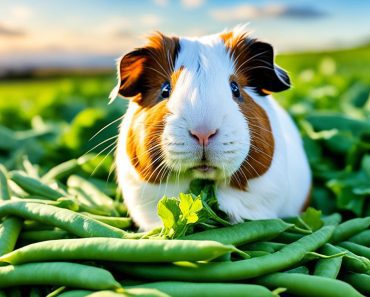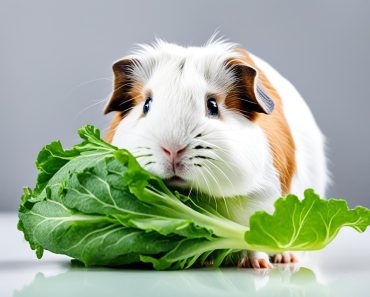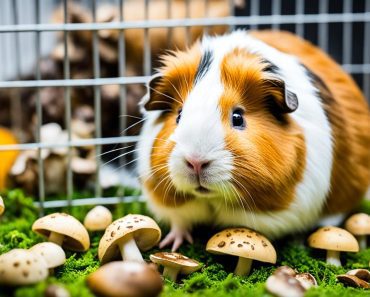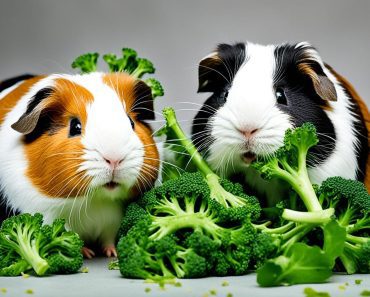Are you wondering: can guinea pigs eat tomatoes? Well, you’ve come to the right place! As a proud guinea pig owner, I understand the importance of providing my furry friends with a balanced and nutritious diet. So, let’s delve into the topic of feeding tomatoes to guinea pigs and find out if they are a safe and healthy treat!
Tomatoes can actually be a healthy addition to a guinea pig’s diet. They are packed with vital nutrients like vitamin C, vitamin A, vitamin K, potassium, and folate. These vitamins play a crucial role in maintaining your guinea pig’s overall health and well-being.
However, it’s important to remember that moderation is key. Too many tomatoes can lead to stomach issues such as tummy aches and diarrhea in guinea pigs. To ensure your furry friend stays healthy, only feed them the flesh of the tomato and avoid giving them leaves, stems, or unripened parts, as these contain tomatine, a potentially toxic compound.
Can Guinea Pigs Eat Tomatoes? Yes, they can.
- Tomatoes can be a healthy addition to a guinea pig’s diet due to their vitamin and nutrient content.
- Feed guinea pigs tomatoes in moderation to prevent stomach issues.
- Avoid giving guinea pigs tomato leaves, stems, or unripened parts, as these can be toxic.
Health Benefits of Tomatoes for Guinea Pigs
Tomatoes offer several health benefits for guinea pigs. They are a good source of vitamin C, which is essential for guinea pigs as they cannot produce vitamin C on their own. Vitamin C helps in boosting the immune system and preventing scurvy. Tomatoes also contain vitamin K, which aids in blood clotting, and fiber, which promotes healthy digestion and prevents constipation and diarrhea.
The high water content in tomatoes helps maintain hydration in guinea pigs. However, it’s important to note that tomatoes should be given in moderation to avoid overconsumption of oxalic acid, which can lead to the formation of bladder stones.
| Health Benefits of Tomatoes for Guinea Pigs | |
|---|---|
| Vitamin C | Boosts the immune system and prevents scurvy |
| Vitamin K | Aids in blood clotting |
| Fiber | Promotes healthy digestion and prevents constipation and diarrhea |
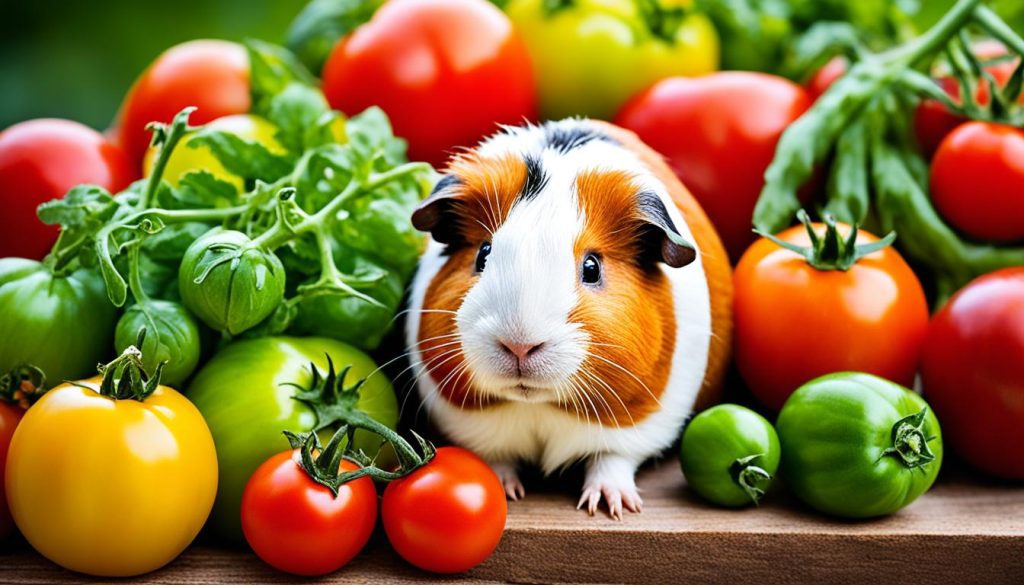
In addition to the vitamins and fiber, tomatoes can provide guinea pigs with essential nutrients for guinea pig digestion and gut health. The fiber content in tomatoes aids in proper digestion by promoting regular bowel movements. This can help prevent digestive issues such as constipation and diarrhea, ensuring a healthy gut for your furry friend. However, it’s crucial to feed tomatoes in moderation to maintain a balanced guinea pig diet and prevent any potential health issues.
Tomatoes as a Nutritious Addition to a Guinea Pig’s Diet
“Tomatoes are packed with essential vitamins and fiber that contribute to a guinea pig’s overall health and well-being. However, it’s important to avoid overfeeding and only offer the ripe flesh of the tomato to ensure the safety and digestive health of your guinea pig.” – Dr. Samantha Johnson
It’s recommended to consult with a veterinarian to determine the appropriate amount of tomatoes to include in your guinea pig’s diet based on their specific needs and health condition. By incorporating tomatoes responsibly and in moderation, you can provide your guinea pig with the health benefits they offer while maintaining their overall well-being.
Risks and Considerations of Feeding Tomatoes to Guinea Pigs
While tomatoes can be a healthy treat for guinea pigs, it’s important to be aware of the potential risks and considerations associated with feeding them to your furry friends. Here are a few key points to keep in mind:
Oxalic Acid and Bladder Stones:
Tomatoes contain oxalic acid, which, in large quantities, can bind to calcium and potentially lead to the formation of bladder stones in guinea pigs. These stones can cause discomfort, pain, and urinary issues. It’s crucial to feed tomatoes in moderation and ensure a balanced diet to minimize the risk of bladder stone formation.
Allergic Reactions:
Just like humans, guinea pigs can develop allergies to certain foods, including tomatoes. If you plan to introduce tomatoes into your guinea pig’s diet, it’s essential to observe any signs of swelling, rashes, itching, or difficulty breathing. If you notice any allergic reactions, it’s best to consult with a veterinarian and discontinue feeding tomatoes.
Tomatine Toxicity:
It’s essential to only feed ripe tomatoes to guinea pigs and avoid any other parts of the plant, such as leaves, stems, or unripened sections. These parts contain a compound called tomatine, which can be toxic to guinea pigs if consumed in significant quantities. To ensure your guinea pig’s safety, only provide them with the ripe flesh of the tomato.
While tomatoes can offer nutritional benefits to guinea pigs, it’s crucial to consider the risks associated with their consumption. Monitor your guinea pig for any adverse reactions or symptoms related to allergies, and be cautious of the potential for bladder stone formation. By feeding tomatoes in moderation and adhering to a balanced diet, you can help keep your guinea pig healthy and happy.
Types of Tomatoes and Feeding Recommendations for Guinea Pigs
Guinea pigs can enjoy a variety of tomato types, each offering its own unique flavor and nutritional benefits. Here are some popular options:
- Cherry tomatoes: These bite-sized tomatoes are perfect for guinea pigs. They can be given whole as a delicious treat.
- Grape tomatoes: Similar to cherry tomatoes, grape tomatoes are small and easy for guinea pigs to nibble on. They make a great addition to their diet.
- Plum tomatoes: A larger variety of tomato, plum tomatoes should be cut into smaller pieces to ensure appropriate portion sizes for guinea pigs.
- Beefsteak tomatoes: Known for their robust flavor, beefsteak tomatoes are a favorite among guinea pigs. Cut them into smaller chunks for easy consumption.
- Yellow tomatoes: These vibrant tomatoes add color to your guinea pig’s plate. They can be sliced and served in small portions.
When feeding tomatoes to your guinea pigs, it’s important to consider portion sizes to avoid overfeeding. Here are some general guidelines:
| Tomato Type | Serving Size | Frequency |
|---|---|---|
| Cherry tomatoes | 1-2 whole tomatoes | A couple of times a week |
| Grape tomatoes | 1-2 whole tomatoes | A couple of times a week |
| Plum tomatoes | 1-2 cubic inches | A couple of times a week |
| Beefsteak tomatoes | 1-2 cubic inches | A couple of times a week |
| Yellow tomatoes | 1-2 cubic inches | A couple of times a week |
Remember, moderation is key to ensure a balanced diet for your guinea pigs.
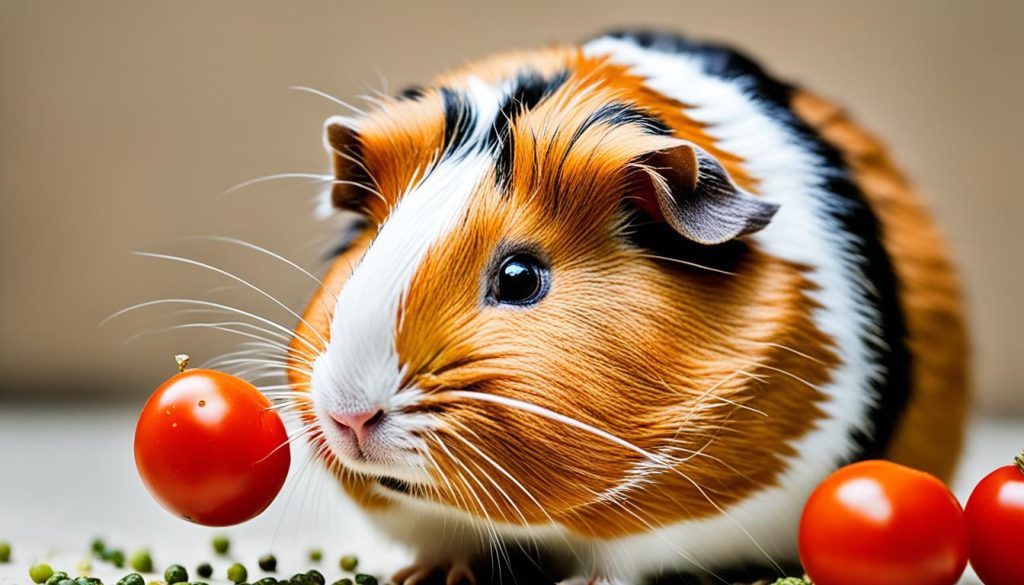
Conclusion
Incorporating tomatoes into a guinea pig’s diet can be a beneficial way to provide them with essential vitamins and minerals. Tomatoes are rich in vitamin C, vitamin A, and vitamin K, which support overall guinea pig health. The fiber content in tomatoes promotes healthy digestion and ensures proper gut function.
However, it is crucial to feed tomatoes to guinea pigs in moderation. Only the ripe flesh should be given, as the leaves, stems, and unripened parts contain tomatine, a potentially toxic substance. To maintain a balanced guinea pig diet, the majority of their nutrition should come from grass or grass hay and dark leafy greens, with tomatoes making up no more than 10 percent of their food intake.
Remember to prioritize your guinea pig’s well-being by carefully monitoring their reactions to tomato consumption. If any signs of discomfort or allergies, such as swelling or difficulty breathing, are observed, it’s best to discontinue feeding tomatoes immediately and consult a veterinarian. By understanding the importance of a balanced diet and treating guinea pigs with caution when introducing new foods, you can ensure their optimal health and nutrition.

